The Big Read: Ubiquitous yet invisible - food delivery riders get short shrift from society, deserve more respect
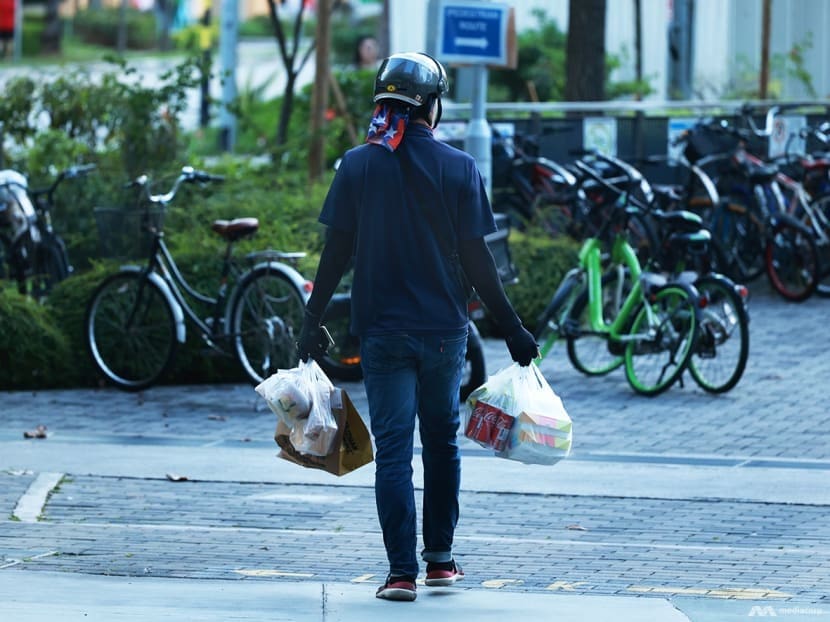
A man making food deliveries on Aug 19, 2024. (Photo: CNA/Raj Nadarajan)

This audio is generated by an AI tool.
SINGAPORE: The uniforms of various food delivery platforms have become ubiquitous in Singapore but to Mr Choo Yi Hung, the shirt can be a badge of inconvenience.
Mr Choo, 30, who has been a delivery rider for six years, initially wore the uniform but stopped, partly because he felt he was treated differently whenever he wore it.
“Every single rider I know (delivering) in my area - CBD - very few of us choose to wear the uniform. It singles you out,” he said, referring to the central business district.
Agreeing, Mr Peter Yeo, 52, a food delivery rider for seven years, recalled an incident during one of his rounds. He was asked by a condominium resident to take the next lift as it got increasingly crowded – even though Mr Yeo had been the first person in line at the lift lobby.
“Sometimes, when we wear our uniform ... some of the residents think that we should give them priority to use the lift,” said Mr Yeo.
“It’s discrimination. Sometimes I feel very pissed off. Everyone is equal, regardless of how rich you are, what your education level is. We are only trying to earn a living.”
These frustrations only scratch the surface of the indignities that food delivery riders face daily.
Mr Yeo said that between 30 and 40 per cent of food and beverage businesses he has encountered do not allow riders to use their toilets, saying they are meant only for customers.

Several riders told TODAY that some condominiums also do not allow riders to ride their electric bicycles into the building’s car park, or to park their vehicles within its compound.
A 36-year-old rider, who declined to be named, said: “We are only allowed to walk in. I once delivered 12 bottles of 1.5L water to a condo. I think I walked almost 500m to reach the customer’s unit. When I was there, my whole shirt was soaked in sweat and my legs wobbled.”
Riders also often find themselves at the receiving end of angry customers, including over issues that are beyond their control. These include delayed deliveries due to long wait times at the F&B vendors, or adverse weather and traffic conditions.
Even when using supposedly shared public spaces, such as pavements and roads, some riders are left feeling like second-rate citizens.
Mr Mohamed Norfirdaus, 42, noted that many pedestrians have the habit of walking with their earphones plugged in while looking down at their phones.
“So when we ring the bell, when we honk, we say ‘excuse me’, they are not aware.”
Left with no choice but to move his vehicle around the person in such cases, Mr Norfirdaus said: “Then they will get shocked, they will start to make noise and hurl vulgarities. But the fact is, we are not at fault.”
While they form a sizable segment of the service sector here, Singapore’s 16,000 delivery riders are often given short shrift, having to please or accommodate many “bosses” - customers, businesses, building managements and delivery platforms.
Ms Michelle Tay, director of programmes and operations at Singapore Kindness Movement (SKM), said: “The overarching perception of service workers, including delivery riders, in Singapore, is that they often remain in the background, silently providing essential services without recognition.
“It is not obvious to most that delivery riders are also service providers – they are not as front-facing as your cashiers, waitstaff, train operators or nurses.
“They are almost ‘invisible’, especially with ‘leave at the door’ options which many started to gravitate to with the onset of COVID-19.”
Agreeing, Mr Yip Hon Weng, Member of Parliament (MP) for Yio Chu Kang Single Member Constituency (SMC), said: “Riders are often seen but not heard. Their work, while visible, does not always garner the empathy or understanding that more traditional professions might receive.
“The nature of platform work, where riders are often treated as independent contractors, can also lead to a perception that they are more expendable or less deserving of traditional worker rights and respect,” said Mr Yip, who is also a member of the Manpower Government Parliamentary Committee.
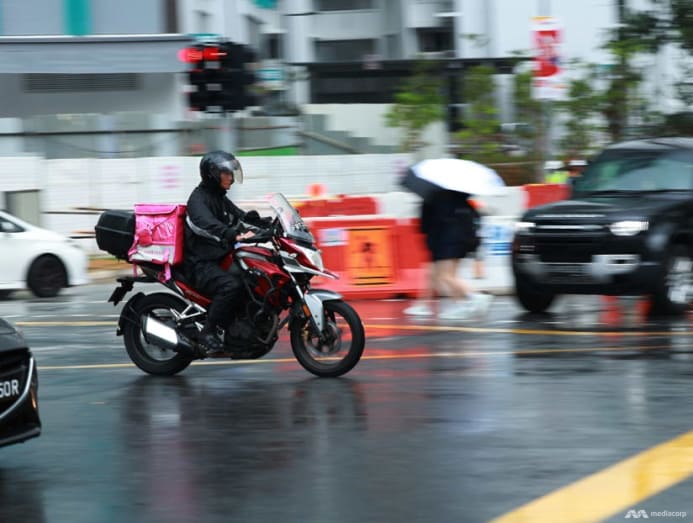
AT RECEIVING END OF BUSINESSES’ FRUSTRATION
As they rush around to fulfil their food delivery orders, riders often find themselves subject to a “cloak of invisibility”, with some telling TODAY how they have been prevented from accessing certain spaces or from using certain building facilities.
Finding parking spaces is a perennial challenge, especially in the CBD and downtown areas, said Mr Abu Bakar Muhamad Saat, a 56-year-old delivery rider.
The situation is only worsened by inconsiderate individuals who choose to park their motorcycles at designated loading areas and pick-up points, intended for delivery riders, for extended periods of time.
“They don’t even want to park in the basement car park. Where there is a designated area for deliveries, they park there ... and then they go shopping,” he said.
“Because of that, (some malls) have removed that space, and now they don’t allow us to park there.”
As a result, some riders have had to shell out exorbitant fees to park their vehicles, which could eat up a significant chunk of their earnings from a single food order.
Mr Rocky Ng, 30, said: “If we only earn S$7 for that delivery, 10 per cent will go towards petrol, and parking could go up to S$1.60. That makes the trip (worth) only five bucks.”
As gig workers, delivery riders also fall in a grey area between permanent employees and self-employed people. This means that the riders do not have a fixed work environment, which in a traditional workplace could include proper resting spaces for them.
Ms Yeo Wan Ling, assistant secretary-general of the National Trades Union Congress (NTUC) and adviser to the National Delivery Champions Association (NDCA), told TODAY that riders have approached her because they do not have rest areas while waiting to pick up their next orders.
While some malls may arrange for a place for riders to sit and wait, these spaces can be located quite a distance from the food outlets.
As such, some riders choose to loiter around the F&B vendors – resulting in other people scolding them for “blocking the space”.
In the absence of proper holding areas and resting places, riders sometimes find themselves having to wait in the hot sun or rain.
In cases where they are restricted from using the business’ or building’s toilets, riders also have to look for malls and petrol kiosks with restrooms that they can use.
Ms Bernie Png, 48, a delivery rider of three years, said: “For me, as long as the solution provided is efficient and reasonable - (such as) a parking area that is near to the building, or service lifts that are efficient and do not need to wait long - I don’t see a reason to feel bad.
“What is bad to me is if our time is not respected, (like if) they force us to park far away, or take lifts that are super slow. This to me is them not solving problems, but creating them without empathy.”

Aside from the lack of spaces, some riders said they also have to put up with the unpredictable behaviour of service staff at the F&B outlets, from being ignored by them to having to bear with the agitation and unhappiness of harried employees.
Mr Abu Bakar said: “Certain vendors can be quite irritating - when they know we are riders, they just ignore us as if we are not present.”
Mr Norfirdaus added: “Sometimes due to high demand, when they receive a lot of orders, some (staff) tend to vent out their frustration – especially to us riders. Because we are not working under their management, the next ‘best’ group of people that they can vent out on is the riders.”
Once, a staff member even threw the food item across the table at him, he said.
Riders get paid per order, so their income is dependent on their ability to fulfil these orders. But this can be impeded by businesses that may accept more orders than they can handle, leading to very long wait times.
This leaves riders stranded at the stores - unable to accept new orders, yet hesitant to cancel the existing ones, as it would affect their incentives given by the platforms.
Such an incident happened to Mr Yeo over the National Day weekend. He told TODAY that he was left waiting 90 minutes for an order to be fulfilled at a Pizza Hut outlet, due to a promotion that the fast food chain was having during the holiday period.
At the same time, he was unable to contact the customer to explain the situation, said Mr Yeo, as the chat box between himself and a customer on the platform would only open after he had picked up the food.
Eventually, the delivery platform cancelled the order after a 90-minute wait, leaving Mr Yeo high and dry earnings-wise.
In response to TODAY’s queries, Pizza Hut said that it was “humbled by the overwhelming response” to its recent National Day pizza promotion and apologised for any inconvenience caused.
“As part of standard operating procedures for store operations during expected high volume periods, our internal ordering system may close online orders once certain locations have reached capacity.”
This would minimise backlog for both customers and delivery partners, said the fast-food chain, adding that the measure was activated during National Day - and at the outlet which Mr Yeo had been waiting.
“We acknowledge there were gaps, and our customer service team has reached out accordingly to customers impacted,” it said.
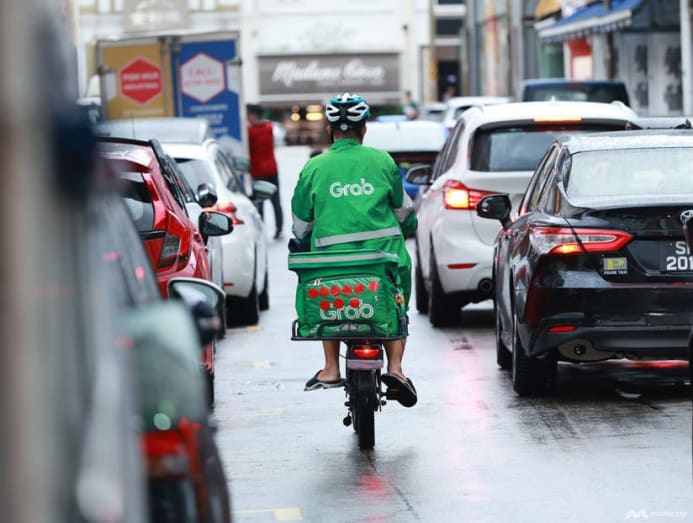
"ENTITLED" CUSTOMERS WITH "UNREALISTIC" DEMANDS
A system overload at the F&B end can have a domino effect on the food delivery riders. They told TODAY that it is common for customers to press them for a speedy delivery when the order is “stuck” at the F&B outlet - and then show their displeasure at the riders when the order arrives late.
Mr Wong Yao Hui, 56, recalled an incident where he had to wait an hour for a vendor to prepare a customer’s order. Just as he picked up the order, the customer cancelled it.
“It’s not my fault. But they take out their anger on the riders,” said Mr Wong.
Ms Suhada Abdullah, a rider of more than five years, also had a similar unpleasant experience while delivering an order to a customer living in a condominium.
The 50-year-old could not reach the customer over the building’s intercom system, and was thus not granted access to his unit.
As she was stuck in the condominium’s basement level where she had limited network signal, she also could not reach him over the platform’s chat.
It took almost half an hour before Ms Suhada finally managed to contact the customer. When she finally delivered the order to his unit, he shouted at her and hurled vulgarities.
“Some customers feel they have the right: ‘I paid the delivery fee, shouldn’t you deliver it?’”
To add to their woes, in recent years the food delivery service has been exploited by unlicensed moneylenders, who misuse the food delivery platform to harass their debtors.
Ms Suhada said she once received an order with cash on delivery indicated. However, the homeowners denied ordering the food item when she dropped it off at their residence and refused to pay.
Ms Suhada later found out that the faux order was allegedly the result of an unlicensed moneylender’s doing.
Even legitimate customers sometimes try to pull a fast one on the riders, such as by keying in a wrong delivery address to save on delivery fees, and then demanding that the riders send the food to the new location at no extra cost.
Others opt for cash payment so they can use it as leverage over the riders – withholding the payment for various reasons, citing long delivery times, food spillages, or purportedly cold food.
Then, there are customers who become unresponsive after ordering the food, leaving the riders waiting for extended periods outside their place of residence.
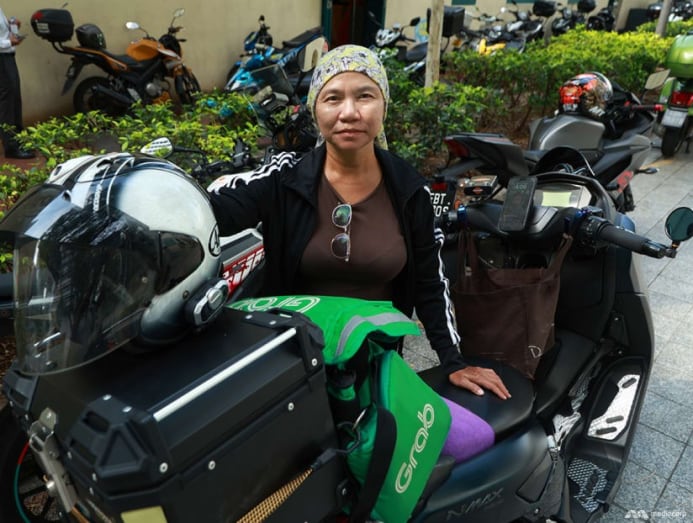
POSSIBLE FORMAL UNION REPRESENTATION A "POWERFUL" STEP FORWARD
With food delivery riders often caught between F&B outlets and customers, they may find themselves at the losing end when disputes happen.
Mr Choo, the rider, said: “I feel like people do not respect us because we do not have a way to collectively come together to assert our demands and to make our presence in this society known.”
Hence, some riders and experts believe that formal union representation - one of the provisions in a new Platform Worker Bill - could improve their standing in more ways than one.
The Bill, tabled in parliament on Aug 6, proposes measures to support the housing and retirement adequacy of platform workers. If passed, it would make provisions for work injury compensation, and strengthen the responsibilities of platform operators and workers to prevent injuries.
The Bill also calls for creating a legal framework for the representation of platform workers, which would go a long way in advocating for their rights.
Currently, riders receive support from the NDCA, which functions as an association under NTUC to protect delivery riders.
Still, without formal representation, Ms Yeo of NDCA said that delivery platforms may choose not to talk to the association.
“With formal representation ... it’s in Singapore’s laws. It’s not just leverage ... (but) the platform companies need to respond to the unions and the associations when they put out certain requests. That’s the powerful part of it.”
And while laws cannot address every issue in detail, the passing of the Bill could set a framework to guide businesses and property managers on fairer practices, said Dr Dianna Chang, senior lecturer of marketing at the Singapore University of Social Sciences (SUSS).
“Some of these grey areas, such as restrictions on riders using certain passenger lifts, are closely tied to property management policies. These policies should align with the broader values promoted by the Bill, reflecting a deeper understanding of fairness and respect.”
Food delivery platforms Grab, foodpanda and Deliveroo, told TODAY that they have systems in place to support riders who face extended waits at F&B merchants.
Acknowledging that consumers tend to order significantly more on public holidays and during festive seasons, a Grab spokesperson said F&B merchants can activate the feature in its app to pause online orders temporarily, to prevent orders from building up.
In the event that the wait time is longer than expected, riders can also contact Grab, and the platform would compensate them accordingly.
Deliveroo, which has 6,000 riders in Singapore, said riders have the flexibility to decline orders when necessary without penalty, and exceptionally long waiting times may be considered when making this decision.
A Foodpanda spokesperson said that if further assistance is required, riders can also inform its support team and request for another rider to be dispatched to deliver the order instead.
When it comes to handling disputes, delivery platforms say they aim to be fair to all stakeholders, and will evaluate all available information to resolve an issue.
The foodpanda spokesperson told TODAY that the platform “thoroughly investigates” every issue, taking into account data points and feedback from all parties, before assessing and taking the appropriate action.
Grab said it “carefully evaluates” consumers’, riders’, and merchants’ feedback to determine if it is valid, and looks at multiple sources to “determine which party may be at fault, to the best of our ability”.
“This includes consumers’ refund histories, merchant- and delivery-partners’ ratings and reviews, GPS data, photo evidence, and more. While this may not always be fool-proof, we do our best to evaluate the situation and provide support accordingly.”
The platforms say they also organise various initiatives to show appreciation to their riders.
As its riders are the “backbone of our platform”, the Foodpanda spokesperson said it regularly organises engagements with riders, such as festive gatherings and annual events where top-performing delivery partners are rewarded.
Under its “panda hearts” programme to engage and support its platform workers, Foodpanda also awarded S$10,500 in education grants to 30 delivery partners or family members in July this year.
Besides organising regular gatherings, Grab’s spokesperson said the platform hosts an annual appreciation event for its riders to celebrate their hard work.
It also organises festive gatherings during key holidays, with invitations extended to riders’ families.
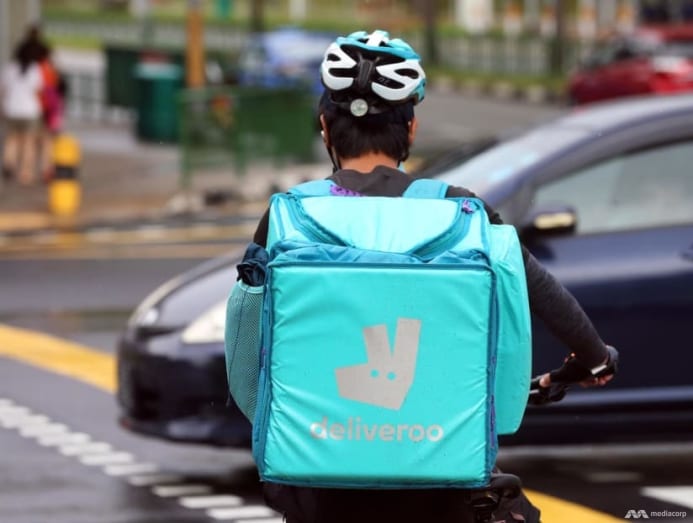
ULTIMATELY, RESPECT AND KINDNESS WILL BE KEY
While Singapore still has some way to go in cultivating respect and compassion for its invisible workers, there are rays of hope.
Although they have had their share of unpleasant experiences, most of the riders interviewed said most of their interactions with customers and businesses are uneventful and they have also encountered some heartwarming moments.
Mr Norfirdaus said: “I may face hundreds of unpleasant individuals, be it in public, with vendors, or even customers who give me a hard time. But just one good gesture from an individual saying thanks will just kill all the negativity.”
Agreeing, several riders told TODAY about their positive experiences with customers, vendors and platforms that have left an indelible impression on them.
Mr Wong said: “I fell from my motorcycle during one of my trips while delivering. I returned to the vendor to redo my order, yet the vendor rejected my money for the damaged goods.”
The vendor even offered to repack a new set of food for Mr Wong, for free.
Ms Suhada added: “Some customers are very friendly and nice to us, giving us tips and drinks. They do understand. On rainy days, when we are very far away, they will say: ‘It’s okay, take your time and ride safely’. Such comments really make our hearts (happy) and feel appreciated.”
Some Singaporeans have gone a step further to promote this culture of kindness, such as general practitioner Lisa Chen.
Dr Chen’s family set up a vending machine - offering free beverages to delivery riders and taxi drivers - outside their home in Yarrow Gardens, Siglap in January last year.
The 52-year-old told TODAY that it is the family’s way of showing their appreciation for the hard work and dedication of delivery riders and drivers.
“These workers often face long hours and challenging conditions, and we wanted to provide a small but meaningful gesture of support. By offering free drinks, we hope to make their day a little easier and remind them that their efforts are valued.”
The family of five also shares about the initiative on an Instagram page, under the handle “TYVMdrinks”.
“We hope that by showcasing our efforts, we can inspire others to think about ways they can support and show kindness to delivery riders and service staff,” said Dr Chen.
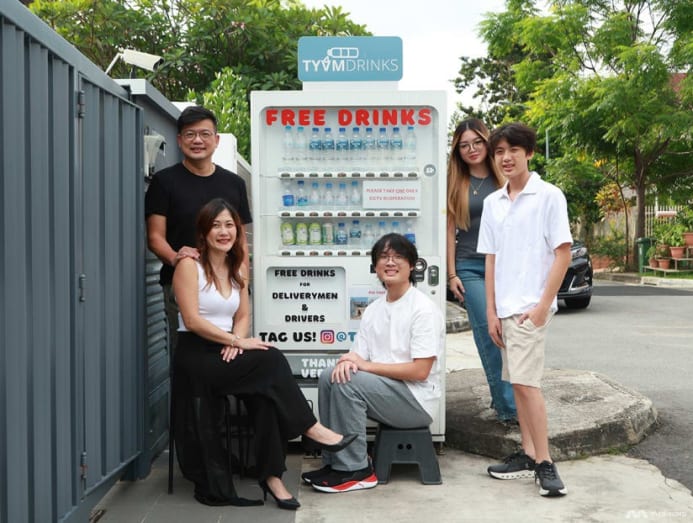
Similarly, a customer who wanted to be known as Mr Kiro and who orders food delivery almost daily, tries to show his appreciation for the riders whenever he can, such as by offering a drink or a cash tip when it is raining.
The 34-year-old retail and media creative recalled an incident in January last year, when he had just returned from work and was waiting to receive a food delivery order.
Mr Kiro received a message over the platform’s chat function, informing him that his rider’s bicycle tyre had punctured. The rider also said that he was seeking the platform’s help to have the order reassigned to another rider in the vicinity.
But Mr Kiro declined. He told the rider that he would head out to meet him and pick up the order himself.
When he arrived, the rider told Mr Kiro that he also had a second order to deliver. As the delivery location was just two blocks away, Mr Kiro offered to do it for him.
But when Mr Kiro dropped off the order at this second customer’s home, the latter’s first words were: “Why so long?”
Despite informing him about the rider’s situation, the customer remarked that the food had turned cold, and persistently asked if he could lodge a complaint on the platform.
“His lack of concern for the rider's situation and his focus on lodging a complaint left me feeling frustrated,” said Mr Kiro.
“We have lost touch with human connections, we have forgotten how to be nice to each other. We get angry on the roads, impatient ... It’s just a cycle that never stops,” he said.
He told TODAY that he hopes people would recognise that respect for all is crucial for society’s progress.
Agreeing, Dr Chiam said: “TYVMdrinks is just one way to express our gratitude and support for delivery riders and service staff. We hope that our initiative can inspire others to find ways to contribute to their well-being and help build a culture of mutual respect and appreciation.
“When society values and appreciates these workers, it promotes better working conditions, encourages higher job satisfaction and builds a stronger community overall.”
This article was originally published in TODAY.












